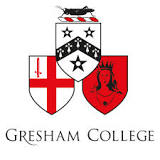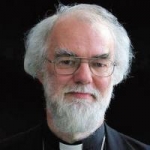

The Most Reverend and Right Hon. the Lord Archbishop of Canterbury, Dr Rowan Williams was born in Swansea, south Wales. He was educated at Dynevor School, Swansea and Christ's College Cambridge where he studied theology. He studied for his doctorate -- in the theology of Vladimir Lossky, a leading figure in Russian twentieth-century religious thought -- at Wadham College Oxford, taking his DPhil in 1975. After two years as a lecturer at the College of the Resurrection, near Leeds, he was ordained deacon in Ely Cathedral before returning to Cambridge. From 1977, he spent nine years in academic and parish work in Cambridge. He was a lecturer in Divinity at the University of Cambridge from 1983, and in 1984 he became dean and chaplain of Clare College Cambridge. 1986 saw a return to Oxford now as Lady Margaret Professor of Divinity and Canon of Christ Church; he was awarded the degree of Doctor of Divinity in 1989, and became a fellow of the British Academy in 1990. He is also an accomplished poet and translator. In 1991 Professor Williams accepted election and consecration as bishop of Monmouth, a diocese on the Welsh borders, and in 1999 on the retirement of Archbishop Alwyn Rice Jones he was elected Archbishop of Wales, one of the 38 primates of the Anglican Communion. Thus it was that, with eleven years experience as a diocesan bishop and three as a leading primate in the Communion, Archbishop Williams was confirmed on 2 December 2002 as the 104th bishop of the See of Canterbury: the first Welsh successor to St Augustine of Canterbury and the first since the mid-thirteenth century to be appointed from beyond the English Church. Dr Williams is acknowledged internationally as an outstanding theological writer, scholar and teacher. He has been involved in many theological, ecumenical and educational commissions. He has written extensively across a very wide range of related fields of professional study -- philosophy, theology (especially early and patristic Christianity), spirituality and religious aesthetics. He has also written throughout his career on moral, ethical and social topics and, since becoming archbishop, has turned his attention increasingly on contemporary cultural and interfaith issues.